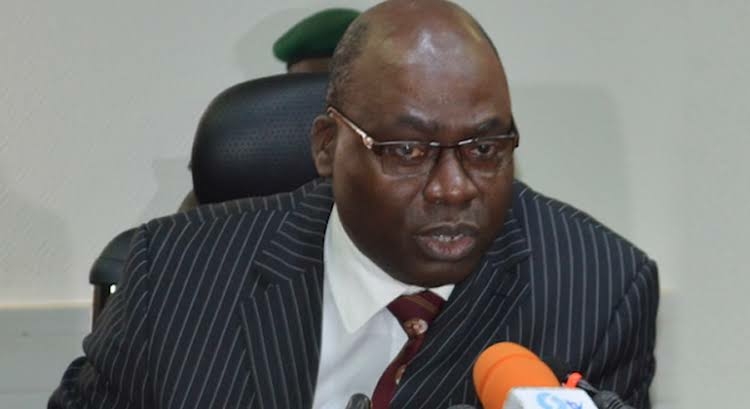According to the Independent Corrupt Practices and Other Related Offences Commission (ICPC), 257 projects totaling N20.138 billion were duplicated in the budget for 2021.
Prof Bolaji Owasanoye, Chairman of the ICPC, disclosed this in Abuja on Tuesday at the 3rd National Summit on Reducing Corruption in the Public Sector.
According to the News Agency of Nigeria (NAN), the summit’s theme is “Corruption and the Cost of Governance: New Imperatives for Fiscal Transparency.”
He stated that the funds were discovered as part of the agency’s projects tracking initiative, which is intended to ensure accountability and transparency in the conception, execution, and management of publicly funded projects.
The ICPC chairman, on the other hand, stated that the anomaly was corrected after the commission brought it to the attention of the Minister of Finance.
On the tracking of constituency projects, he stated that in the third phase of the exercise, 1083 projects were recorded across the country, with the exception of Borno and Zamfara due to security challenges.
He stated that the exercise verified the implementation of legislators’ executive and zip projects.
“We have so far initiated enforcement actions against 67 contractors, forcing them back to site, and ensuring the completion of 966 projects worth N310 billion, some of which had previously been abandoned.”
Our findings show that the same corruption afflicts both executive and zip projects, undermining government projections, increasing the cost of governance, and denying Nigeria value for money.
These maladies include: inadequate needs assessment, which disconnects projects from beneficiaries; and false certification of unfinished contracts as completed.
In addition, deliberate non-performance of contracts, ongoing criminal diversion and conversion of public property by civil servants.”
Other difficulties stem from budgetary duplication of projects.
“The ICPC review discovered that 257 projects totaling N20.138 billion were duplicated in the 2021 budget, prompting us to submit an advisory to the Minister of Finance, who promptly acted to prevent abuse,” he said.
The ICPC chief went on to say that the agency investigated some cases of illegal recruitment forwarded to it by the Federation’s Head of Civil Service.
He also stated that the investigation’s findings have implicated the Ministry of Labour and the University College Hospital Ibadan, as well as a number of corrupt staff from other MDAs at a lower level.
“At a higher level, a syndicate of corrupt individuals within the service corruptly employ unsuspecting Nigerians, issue them forged letters of employment, and fraudulently enroll them in IPPIS.”
Innocent Nigerians were also dispatched to MDAs to begin work.
“The ICPC is prosecuting one of the syndicate’s leaders, from whose custody we recovered several fake letters of recommendation purportedly signed by the President’s Chief of Staff, Hon. Ministers, the Federal Civil Service Commission, and other high-ranking Nigerians.”
“This abuse of power is carried out with the complicity of compromised elements within IPPIS.” “These cases are being investigated right now,” he added.
Owasanoye, on the other hand, advised the government to invest more in prevention and behavior change strategies, in addition to law and order measures, to combat corruption.
This, he believes, is critical if we are to maximize the benefits of prevention and the wisdom that “prevention is better than cure.”
“In the coming months, the ICPC, in collaboration with development partners such as the Ford Foundation for Illicit Financial Flows (IFFs) and the MacArthur Foundation for Behavior Change, will devote more attention to these areas.”
Boss Mustapha, the Secretary to the Government of the Federation, stated that recent Budget Office data indicated that “actual MDAs recurrent spending was still on the rise.”
He added that it has risen from N3.61 trillion in 2015 to N5.26 trillion in 2018 and N7.91 trillion in 2020.
“The government is deeply concerned that approximately 60% of the Federal Government’s Overhead Expenditure in three years (2012-2014) was spent on travels, maintenance, local and international training, welfare, office stationery, consumables, and honoraria.”
“This summit is intended to appropriately re-focus all arms of government and their agencies on the need for greater transparency in the use of financial resources to the purposes for which they are intended, in order to reduce the cost of governance.”
According to Senate President Ahmad Lawan, corrupt practices and other vices have weakened public institutions and government agencies.
Lawan, who was represented by Sen. Michael Nnachi, stated that reducing corruption in the public sector was critical to the delivery of government programs and services in order to meet the 2030 SDGs (SDGs).
The Senate President promised that the National Assembly would continue to take actions and pass legislation to strengthen the fight against corruption and limit illicit financial flows.
President Muhammadu Buhari presented Public Service Integrity Awards to three outstanding Nigerians as the event’s high point.

















Discussion about this post